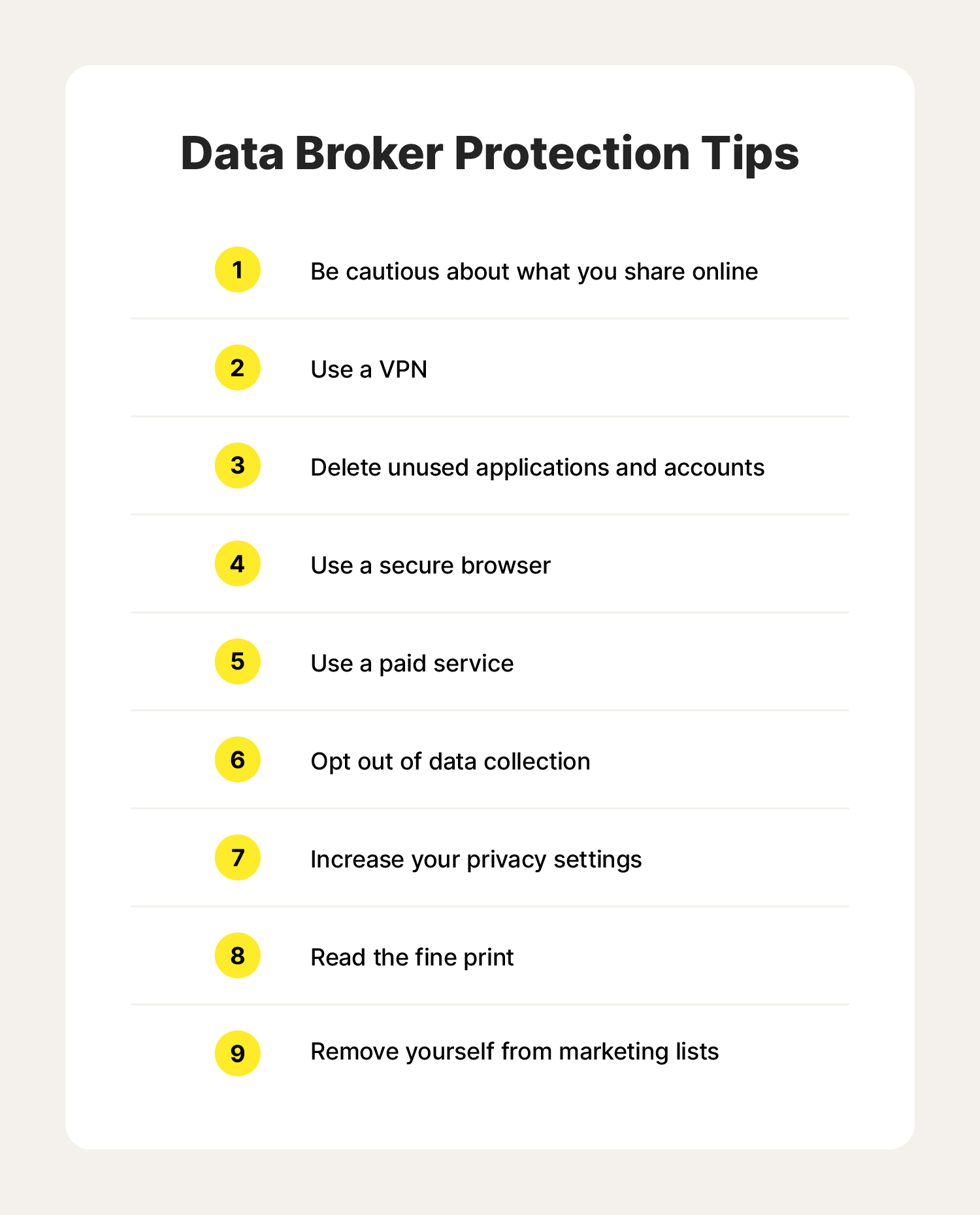Exploring the Potential Impacts of the Proposed Data Care Act on the O…
페이지 정보

본문
Recent developments in information governance have sparked significant discussions. The landscape surrounding personal information collection is rapidly changing. Organizations are now facing heightened scrutiny regarding their practices. Concerns about privacy and ethical use of consumer data are at the forefront. This shift indicates a critical juncture in the relationship between consumers and entities handling their information.
As awareness grows, the need for accountability becomes increasingly apparent. Consumers desire transparency regarding how their information is utilized. Regulatory frameworks are emerging to address these issues comprehensively. In this evolving scenario, entities managing personal details must adapt to new expectations.
With legislation on the horizon, the stakes have never been higher. Compliance with emerging regulations will require a reevaluation of existing methods. Organizations will need to invest in systems that ensure user information is handled responsibly. Navigating these changes will be essential for maintaining trust with consumers.
Moreover, this new environment presents both challenges and opportunities. Entities that embrace ethical practices may gain a competitive edge. As the public becomes more informed, those prioritizing transparency may find increased loyalty. The outcome of these developments will significantly shape the field of personal information management.
The Data Care Act: An Overview

Understanding the landscape of information collection is crucial in today's tech-centric world. Various entities gather and analyze personal information across numerous sectors. This process often takes place without significant scrutiny or consumer awareness. As a result, individuals frequently find themselves at the mercy of these organizations. The push for regulatory frameworks is gaining momentum.
Companies involved in information aggregation play a vital role. They bridge gaps between service providers and consumers. By collecting data from a variety of sources, they compile extensive profiles. This information assists industries in targeted marketing and personalized offerings. However, it raises serious ethical questions regarding privacy.
Knowing who these entities are can shed light on their operations. Individuals often refer to them as "information sellers," or "privacy traders." These firms gather, manage, and sell extensive databases filled with personal details. Often, consumers remain unaware of how their information is utilized. This lack of transparency can lead to distrust.
| Type of Entity | Common Practices | Example Uses |
|---|---|---|
| Consumer Data Brokers | Collect personal information from various public records | Targeted advertising campaigns |
| Marketing Agencies | Analyze behavioral data for consumer insights | Customization of marketing strategies |
| Risk Assessment Firms | Provide data to evaluate creditworthiness | Loan approvals and insurance underwriting |
This diverse range of practitioners highlights the expansive nature of the industry. Increased awareness of these entities sparks discussions about privacy rights. People are beginning to question how much control they have over their personal information. In many cases, individuals lack knowledge regarding consent and data usage.
Consequently, a shift towards greater accountability emerges. More consumers seek clarity on how their information is handled. Regulatory actions aim to enhance transparency and protect individual rights. By establishing clear guidelines, stakeholders hope to foster trust between consumers and these organizations. This evolving landscape could redefine expectations for privacy and accountability in the digital age.
Who are Data Brokers?
In today’s digital age, individuals and organizations collect vast amounts of information. This information plays a crucial role in various industries. Some entities specialize in gathering, analyzing, and selling personal data. These entities are commonly referred to as brokers. They operate behind the scenes, often unnoticed.
Understanding their role is vital for grasping current privacy debates. Here are some key points:
- They compile personal data from various sources.
- Information can include social media activity, purchase history, and online behavior.
- They often aggregate data to create detailed consumer profiles.
- These profiles can be sold to companies, marketers, and even governments.
While anonymity shields their operations, their influence is undeniable. Many organizations rely on this data to tailor advertisements, improve services, or even make credit decisions. This practice raises concerns about privacy, consent, and ethical standards. Understanding the motivations and business models of these entities is critical for addressing potential abuses.
Furthermore, brokers use complex algorithms and analytical techniques. This allows them to derive insights that may not be evident through simple observation. In essence, they transform raw data into actionable intelligence. The sheer volume of information they manage can be staggering, often involving millions of records. As technology continues to evolve, their methods are becoming increasingly sophisticated.
Many consumers remain unaware of the extent of data collection. The process often operates in the shadows, impacting lives without explicit consent. As public interest in privacy grows, transparency becomes essential. Awareness is the first step toward protecting individual rights and fostering informed conversations about data privacy.
Ultimately, the landscape is shifting. As regulations emerge, these entities must adapt. Understanding who these brokers are, their methods, and their impact is crucial in navigating this complex terrain.
Key Provisions of the Data Care Act
In recent years, the landscape of information privacy has experienced significant changes. With more organizations collecting personal details, the need for protection has become essential. This new regulation aims to enhance privacy rights while imposing stricter rules on entities handling personal information. By establishing clearer guidelines, it seeks to balance interests of consumers with those of businesses.
One of the core features includes greater transparency in data collection practices. Individuals deserve to know how their information is gathered, used, and shared. Transparency not only builds trust but also empowers users to make informed decisions. It mandates that organizations disclose their data usage policies in a clear and understandable manner.
Another vital aspect is the introduction of stronger consent requirements. Explicit consent will be necessary before any personal data can be collected or processed. Users must provide affirmative action, making it difficult for organizations to rely on vague agreements. This shift places control back in the hands of individuals, allowing them to determine who accesses their information.
Moreover, individuals will gain enhanced rights regarding their personal details. They will have the opportunity to access, correct, or delete their information when requested. This level of control is unprecedented and signifies a move towards prioritizing user autonomy. Organizations will need to establish straightforward processes for individuals to exercise these rights effectively.
Additionally, severe penalties will be introduced for non-compliance. Businesses that fail to adhere to these new requirements may face substantial fines. Such measures are designed to incentivize adherence to privacy standards. It aims to deter potential violations and encourage companies to take responsibility for their data handling practices.
Finally, the regulation emphasizes the importance of accountability among entities managing personal information. By requiring companies to appoint dedicated data protection officers, it fosters a culture of responsibility. These officers will oversee compliance efforts and help navigate the complexities of privacy laws. A proactive approach is essential to address potential issues before they escalate.
Impact on Consumer Privacy Rights
In recent years, heightened awareness surrounding privacy concerns has sparked significant discussion. Individuals are increasingly concerned about how their personal information is collected and utilized. This growing unease has led to demands for more robust protections. Legislation aimed at safeguarding privacy rights has become a priority across various sectors.
As this framework takes shape, consumers stand to benefit from improved transparency. They may gain greater control over their own information. Empowering individuals to understand how their data is used is a crucial step. Additionally, mechanisms for accountability can reshape how organizations handle sensitive details.
Key provisions within the legislation introduce new rights for consumers, including access and deletion requests. These rights enable individuals to demand clarity about their information. Furthermore, provisions may require companies to adopt clearer consent practices. Such initiatives aim to reduce misunderstandings and enhance trust between businesses and the public.
Moreover, this framework could impose stricter penalties for non-compliance. Organizations that mishandle personal data may face severe repercussions. This shift could encourage companies to reconsider their practices and prioritize consumer privacy. As a result, businesses might invest in technologies that enhance security measures.
However, challenges remain as these changes unfold. Some organizations may resist adapting to the new reality. Concerns about financial implications and operational disruptions are common. Striking a balance between compliance and profitability will be a complex task for many.
Ultimately, the evolution of privacy rights in this context can redefine consumer expectations. Individuals are likely to demand increased transparency and responsibility from businesses. As society transitions into a more digitally interconnected world, the conversation surrounding privacy rights will undoubtedly continue to grow in importance. Achieving a sustainable model for both consumer protection and business interests is an ongoing challenge that will require collaboration and innovation.
Challenges for Data Brokers Ahead

With increasing scrutiny on the collection and use of personal information, numerous obstacles loom on the horizon for entities operating in this sector. These challenges arise not just from regulatory measures but also from shifting consumer expectations. As privacy becomes a paramount concern, many companies must rethink their current practices. Compliance is no longer a mere checkbox exercise; it demands genuine commitment and adaptation.
New regulations introduce complexities that were previously absent in the operational landscape. Compliance costs may escalate dramatically, impacting profitability. In addition, maintaining consumer trust will require transparency and accountability. As scrutiny intensifies, stakeholders face mounting pressure to demonstrate ethical data management practices. Consumers are increasingly informed about their rights, necessitating a proactive approach from organizations.
Furthermore, evolving technologies pose unique hurdles. Traditional practices may soon be deemed inadequate. For instance, the rise of artificial intelligence and machine learning presents opportunities but also introduces risks regarding bias and privacy. Organizations must balance innovation with ethical considerations, ensuring that advances do not compromise user safety.
| Challenge | Description | Potential Impact |
|---|---|---|
| Regulatory Compliance | Adhering to new privacy laws and guidelines. | Increased operational costs and potential legal liabilities. |
| Consumer Trust | Building and maintaining confidence among users. | Loss of clientele if trust is eroded. |
| Technological Adaptation | Integrating emerging tech responsibly and effectively. | Ability to innovate without compromising privacy. |
| Public Perception | Addressing negative views of personal information usage. | Influencing brand reputation and market position. |
Ultimately, navigating these challenges requires a multifaceted strategy. Constant engagement with regulatory developments is essential. Companies must invest in education and training for their teams, ensuring everyone understands the importance of compliance. Heightened awareness of consumer rights will only serve to elevate the stakes. Failure to adapt may result in significant competitive disadvantages.
In conclusion, adapting to this evolving environment is not merely advisable; it is imperative for survival in the modern marketplace. The ability to effectively address these challenges will define successful organizations in the future.
Comparative Analysis with Existing Laws
Current regulatory frameworks shape the landscape of personal information management. Different jurisdictions have established varied guidelines. Some laws focus on consumer protection, while others emphasize organizational responsibilities. This creates a complex web of guidelines that companies must navigate. As new legislation emerges, it’s vital to examine how these legal frameworks interact with one another.
Many existing regulations mandate transparency regarding information collection practices. For instance, the General Data Protection Regulation (GDPR) in Europe emphasizes individuals' rights to know how their data is used. Similarly, the California Consumer Privacy Act (CCPA) enhances transparency, granting consumers more control over their personal details. However, inconsistencies arise when comparing these frameworks with recent proposals.
While some laws prioritize individual privacy, others may lean toward business interests. This dichotomy complicates compliance efforts for organizations operating internationally. A small misalignment can lead to significant penalties. Companies often find themselves in a tug-of-war between adhering to stringent privacy rules in some regions while managing more lenient regulations in others. It creates a perplexing scenario for stakeholders involved.
Comparative studies reveal that various laws employ diverse definitions of key terms. For example, "personal information" may encompass different data types across jurisdictions. Some regulations include biometric data, while others might not. These discrepancies create challenges in standardizing practices across borders, further complicating compliance efforts.
Moreover, enforcement mechanisms vary considerably. Certain frameworks feature robust penalties for non-compliance, deterring organizations from neglecting their responsibilities. Others rely more on self-regulation, which can lead to lax adherence to privacy standards. This inconsistency highlights the need for a cohesive approach in which organizations can operate effectively without being caught off guard by sudden legal changes.
As we look ahead, examining interactions between new measures and established regulations becomes increasingly important. Understanding these dynamics will help stakeholders navigate the evolving landscape of privacy laws. Moreover, it will enable them to anticipate potential challenges while harnessing opportunities for improving data governance practices. The future is rife with possibilities, but it demands vigilance and adaptability from all parties involved.
Future of Data Management Practices

The landscape of information management is evolving rapidly. With each new regulation, there are shifts in how entities handle personal details. Privacy concerns are taking center stage in discussions surrounding technology. The challenge lies in balancing innovation with ethical considerations, which many organizations struggle to navigate.
As technology advances, the methods for collecting, analyzing, and storing information become more sophisticated. This evolution will likely lead to an increase in transparency and control for individuals. However, questions arise about who holds accountability for breaches or misuse of such sensitive details. The interplay between user trust and corporate responsibility will dictate future trends.
- Enhanced consumer consent mechanisms.
- Greater emphasis on transparency in data usage.
- Innovative approaches to data minimization.
- Emergence of privacy-focused technologies.
- Strengthened rights for individuals regarding their own information.
Organizations will need to adopt more ethical practices, as consumers become increasingly aware of their rights. Lessons from previous challenges should guide the development of future frameworks. This could include better security measures, regular audits, and comprehensive training for employees to ensure compliance with emerging standards.
- Integrate privacy by design into software development processes.
- Engage in regular consultations with stakeholders.
- Prepare for potential shifts in regulatory environments.
- Invest in technologies that facilitate greater user control.
Looking ahead, individuals can expect a more proactive role in managing their own data profiles. This empowerment may lead to an increase in consumer trust, essential for fostering healthy relationships between organizations and the public. As these changes unfold, ongoing dialogue will be critical to ensure that evolving practices meet both ethical standards and user expectations.
In conclusion, the future landscape of information management must prioritize consumer rights while simultaneously enabling technological growth. Meeting these dual demands will be no small feat, yet it is essential for creating a safer and Read more on Medium respectful digital environment.
Public Response and Advocacy Efforts
Recent shifts in legislation have sparked significant public discourse. Citizens are becoming increasingly aware of the nuances involved in their personal information management. This growing consciousness has led to robust discussions about privacy rights, data security, and the ethical responsibilities of information stewards. Various stakeholders are mobilizing, advocating for transparency and accountability across the board.
Advocacy groups play a crucial role in shaping this dialogue. They focus on raising awareness regarding consumer rights and the importance of safeguarding personal data. Many organizations have launched campaigns aimed at educating the public about their digital footprints. Social media platforms serve as vital tools for these initiatives, enabling a wider reach and engagement.
Moreover, collaborations between tech experts, legal professionals, and consumer rights advocates have emerged. These coalitions aim to push for more stringent regulations and ethical data handling practices. They highlight the risks associated with insufficient oversight and the potential consequences for individuals. As the climate surrounding privacy evolves, so do the strategies employed by these advocates.
Public sentiment is becoming increasingly vocal, with many individuals demanding stronger protections. Town hall meetings, petitions, and online forums are common venues for discourse. These gatherings foster community engagement and give voice to citizen concerns. In many cases, the urgency of these discussions reflects a collective desire for change.
Additionally, some companies are beginning to respond to this pressure. Organizations are reassessing their practices in light of public scrutiny. They recognize that trust is a valuable currency in today’s digital landscape. Building a positive relationship with consumers hinges on transparency, fair practices, and a commitment to protecting personal information.
As the conversation continues to evolve, grassroots movements are gaining traction. Local initiatives drive home the message that communities want control over their data. Activists are leveraging stories of real individuals affected by data misuse to galvanize support. Through these efforts, a clearer picture of consumer expectations is emerging.
Ultimately, this dynamic environment underscores the importance of ongoing advocacy. Public response is not a fleeting moment; it represents a paradigm shift towards greater accountability. As citizens become more informed, the pressure on entities handling personal information will intensify. In this evolving narrative, the future of data governance hinges on collaboration, education, and sustained public engagement.
- 이전글What's The Reason Everyone Is Talking About Pragmatic Slot Experience Right Now 24.10.23
- 다음글마음의 평화를 찾아서: 명상과 정신력 강화 24.10.23
댓글목록
등록된 댓글이 없습니다.


